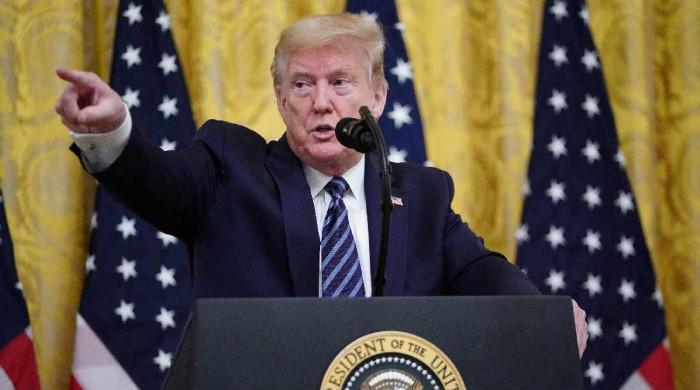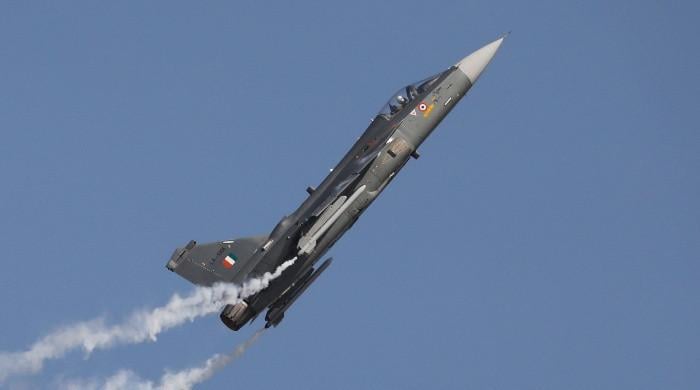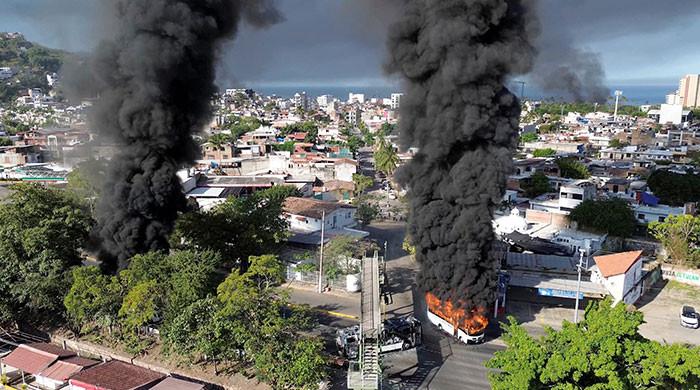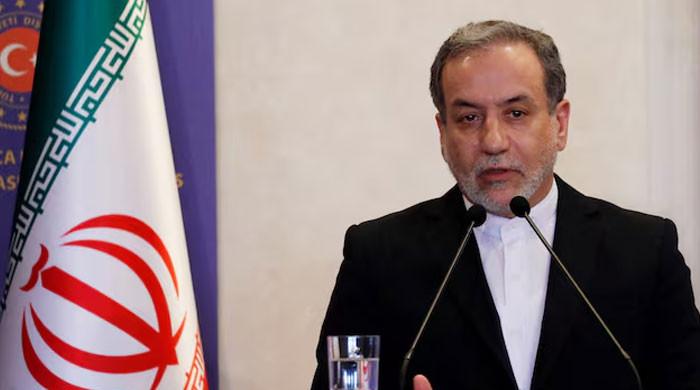Amid border tensions, Pakistan and India come together to fight locusts
Five meetings between were held between the two countries on this regard last year, reports Indian media
February 17, 2020
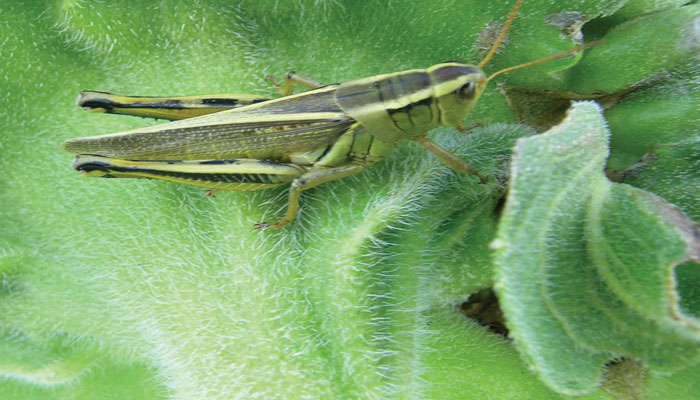
NEW DELHI: Pakistan and India have held five meetings in past few months, unblemished by the public differences, in a bid to deal with a common enemy – the deadly desert locust, The Times of India reported on Sunday.
The coordination will continue as a locust attack of greater magnitude is forecast from June 2020 onwards, in comparison to that observed in 2019, when farmers of certain districts of Rajasthan and Gujrat confronted severe damage to their crops, the publication claimed.
“It is also predicted that invasion could occur in scheduled desert area of India in June 2020 with advent of monsoon by spring-bred swarms from southeast Iran, southwest Pakistan and the Horn of Africa that may be of a greater magnitude than last year,” the publication added.
Also read: Swarm of locusts disrupts daily life in Karachi
The short-horned grasshopper targetted both India and Pakistan, attacking the standing winter (rabi) crop before being finally controlled by January. Five meetings between the two countries were held at Munabao in India and Khokhrapar in Pakistan during June-December last year to exchange information on tackling the menace.
Though Pakistan had to declare a ‘national emergency’ due to the locusts, TOI said India could minimise the damage by successfully checking breeding and forward movement of the locust.
'Delhi to use helicopters, drones for aerial spraying'
In response to India’s preparedness in view of the likelihood of a bigger invasion in June, Minister of State for Agriculture Kailash Choudhary told media on Saturday that Delhi would procure 60 specialised sprayers (equipped with latest technology), use helicopters and additional drones for aerial spraying of pesticides.
Also read: Insecticide developed at University of Karachi effective against locust swarms: report
“We are fully prepared to control such situation in future. We have been in touch with home, civil aviation and defence ministries to enhance our aerial capabilities to deal with locust attack,” said Choudhary, a MP from Barmer, one of the eight districts of Rajasthan vulnerable to locusts.
The junior minister claimed “had India not controlled spread of locus effectively, it would have even reached Bangladesh” — as had happened in 1950, when Dhaka faced a massive attack and remained under locust influence for next 14 consecutive years.
“There were five meetings held between India and Pakistani officials over the locust attack issue. We did not let it spread beyond five districts in India and the UN appreciated our efforts,” said the minister.




